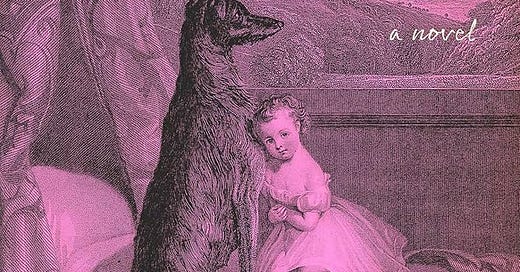We got Emmalea Russo on the pod to discuss her first novel Vivienne. Listen on Spotify, Apple, or YouTube.
I also reviewed the book for RealClear. Check out some excerpts:
F. Scott Fitzgerald’s 1937 short story “Thank You For the Light” follows a Chicago-based corset-saleswoman as she scours the streets for matches to light her cigarette. A widow with “no close relatives to write to in the evenings,” smoking “meant a lot to her sometimes. She worked very hard and it had some ability to rest and relax her psychologically.” Thus, it had “come to be an important punctuation mark in the long sentence of a day on the road.” The hallowed moment of her daily after-work smoke had become an increasingly controversial act: The narrator lets on that the general consensus after the First World War was that smoking in public was poor manners–at least among those who didn’t fight in it.
Tired of searching, the main character eventually wanders into an empty Catholic church, places her wares on a pew in front of a statue of the Virgin Mary, and while saying a prayer, begins dozing off…only to wake up to the smell of tobacco and a burning sensation in her fingers. She takes a puff from her cigarette and gives thanks to the Blessed Mother “for the light.”
Few these days manage to pull off such a playful yet measured balance between the sacred and the profane as well as Fitzgerald did…though Emmalea Russo’s latest novel Vivienne does come close. The plot exudes an otherworldly aura that whiffs of Catholic saints and tarot cards, suicide and smoking addictions, surrealist art shows and Freudian neuroses.
We meet Vivienne Volker, an aging artist whose work was recently banned from an exhibition at a museum due to accusations that she had brought on the suicide of her ex-lover’s wife eons ago. The book’s early pages feature comments from social media pages both condemning and defending Volker, eventually leading up to the official statement released by the museum explaining its decision to remove her pieces from the exhibit, which was “not an act of censorship,” as they “seek to foster artistic freedom in an atmosphere of safety.” But considering the “violent nature of her work,” it was better to remove it so as to “reduce art-induced distress.”
The allusions to cancel culture are surely at least semi-autobiographical: The publisher slated to release Russo’s fourth volume of poetry dropped the book at the last minute due to complaints over her “associations with people and entities…deemed ‘alt-right’ or ‘fascist-adjacent.’” A bit too on-the-nose, the book’s references to cancel culture feel overly contemporary and could benefit from more subtlety…as could its moments of vulgarity, gore, and iconoclastic irreverence. And its liberal use of social media posts and frequent shifts in stylistic formats and perspectives–as creative as they may be–are somewhat tough to follow. Yet despite the execution leaving us wanting, Russo’s portrayal of Vivienne’s cancellation reveals rather profound and striking insights into what goes on in the conscience of someone whose livelihood has been destroyed by online slander.
On a car ride to a church soon after the news broke, Vivenne begs Velour, her daughter, for yet another cigarette. Velour refuses to cave, and chides her mother for having allowed Vesta, her daughter who is still a child, to try a few puffs of a cig, which Vivienne insists is only a venial sin. While waiting in a pew before confession, Vesta asks her grandmother if she really had any part in the suicide. “I’m answerable, in a sense,” she concedes. “Not to them, the voices, mechanical…those…people talking. But to Him. To you. Myself. Another power, divine. Not them. No.” Vivienne lets on that things weren’t so black and white, but that she doesn’t mind the cruel treatment she’s received from the public, and in fact actually “welcomes it.” While she admits that some of the persecution she’s experiencing is merited, the aspects that aren’t she embraces as something of an offering, an “oblation,” for the sins of others, “like a piece of Eucharist…”
…
Despite its weaknesses, Vivienne will likely open readers’ eyes to dimensions of cancel culture that often slip through the cracks of the discourse. The novel conveys how much the question of whether or not an artist’s transgressions taint their creations is a tricky one–perhaps even more complex than trying to diagnose an ecstatic mystic or interpret surrealist art. Simplistic platitudes–asserting that an artist’s “problematic” inclinations directly shape their art, or that art is amoral and thus separate from an artist’s personal life–miss the mark. Such an attitude resists the uncomfortable yet crucial position of living within the tension, of learning to look at the whole messy picture of a human being and the art she creates and to embrace it for all of its complexity.
Though I must admit that I’m beginning to wonder if the real question is not whether we are willing to stay within that tension, but if we are even competent enough to do so anymore. The infantile turn that internet discourse has taken–as Russo indicates in her novel–leaves me feeling that perhaps we’ve become too “simple,” for lack of a better term. Hopefully Russo’s book will provoke us to look deep into our souls and psyches and ask ourselves who we really are and what’s really going on around us.
Continue reading at RealClear.





Do you have a list of books that you feel straddle the line between profane and sacred?